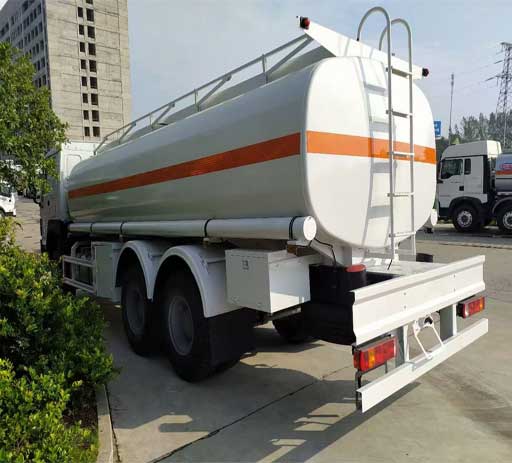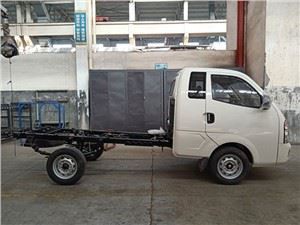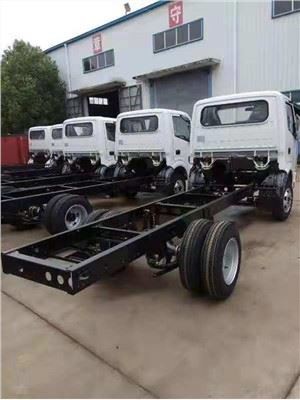Everything You Need to Know About Dumpster Delivery Trucks
When it comes to waste management, dumpster delivery trucks play a crucial role in transporting and delivering dumpsters to various locations. Understanding how these trucks work, their types, and their applications can help you make informed decisions when seeking waste disposal solutions. This article will explore all aspects of dumpster delivery trucks, from the types and specifications to operational tips and best practices.

What is a Dumpster Delivery Truck?
A dumpster delivery truck is a specialized vehicle designed to transport and deliver dumpsters for waste disposal. These trucks are equipped with mechanisms that allow for the easy loading and unloading of dumpsters, making them essential in the construction industry, home renovations, and various businesses in need of waste management.
Key Features

- Hydraulic Lifting System: Most dumpster delivery trucks utilize a hydraulic system that allows them to lift heavy containers effortlessly.
- Vehicle Size: These trucks vary in size, with larger models suited for bigger dumpsters and heavier loads.
- Durability: They are built to withstand demanding environments and heavy use.
Types of Dumpster Delivery Trucks
There are several types of dumpster delivery trucks, each designed for specific waste management tasks. Understanding the different types can help you choose the right one for your needs.
1. Roll-Off Trucks
Roll-off trucks are the most common type of dumpster delivery truck. They feature a heavy-duty truck bed and a rolling mechanism that allows dumpsters to be easily placed and picked up at job sites.
Applications

- Construction sites
- Residential cleanouts
- Commercial waste collection
2. Front-Load Trucks
These trucks have a front-loading mechanism that allows for efficient waste collection. They are often used for regularly scheduled pickups at commercial sites.
Applications
- Restaurants
- Office buildings
- Retail locations
3. Side-Load Trucks
Side-load trucks are equipped with an arm mechanism that picks up dumpsters from the side. They are typically used in residential areas for curbside pickup.
Applications
- Residential neighborhoods
- Small businesses
Specifications of Dumpster Delivery Trucks
Understanding the specifications of dumpster delivery trucks can help you determine their capacity and suitability for different waste management needs.
| Specification | Description |
|---|---|
| Gross Vehicle Weight Rating (GVWR) | Indicates the maximum weight the truck is designed to handle. |
| Payload Capacity | Refers to the maximum weight the dumpster can hold. |
| Dumping Mechanism | Details the type of mechanisms (roll-off, front-load, side-load) used for dumping. |
| Fuel Type | Can be diesel or gasoline, impacting operational costs. |
Operational Tips for Managing a Dumpster Delivery Truck
If you are considering investing in a dumpster delivery truck or hiring one for your business, here are essential operational tips:
1. Regular Maintenance
Regular maintenance is vital for ensuring the longevity and efficiency of your dumpster delivery truck. Schedule routine checks for hydraulic systems, brakes, tires, and engine performance.
2. Proper Training for Drivers
Ensure that your drivers are trained on the specific truck models they operate. This training should include safe loading and unloading practices, as well as thorough knowledge of local waste disposal regulations.
3. Optimize Delivery Routes
Plan the most efficient routes for dumpster deliveries to save on fuel costs and time. Use route optimization software to improve efficiency.
Cost Considerations for Dumpster Delivery Trucks
Understanding the costs involved in dumpster delivery trucks can help you budget effectively for waste management solutions.
1. Purchase vs. Lease
Deciding whether to purchase or lease a dumpster delivery truck depends on your business needs. Leasing can be a cost-effective option for businesses that do not require constant use of the truck.
2. Maintenance Costs
Factor in the costs for regular maintenance, repairs, and inspections. Having a maintenance schedule can prevent costly breakdowns.
3. Fuel Expenses
Consider fuel efficiency when evaluating potential trucks. Diesel engines may provide better fuel economy in larger vehicles.
Environmental Considerations
With growing concerns over waste management’s impact on the environment, understanding eco-friendly practices is essential for dumpster delivery truck operations.
1. Recycling Initiatives
Implement recycling initiatives to minimize landfill waste. Partner with recycling stations to ensure proper disposal of recyclable materials.
2. Fuel Efficiency
Invest in modern trucks that offer better fuel efficiency and lower emissions. This not only helps the environment but can also reduce operational costs.
Choosing the Right Dumpster Delivery Truck
Selecting the right dumpster delivery truck is crucial for effective waste management. Here are some factors to consider:
1. Size and Capacity
Assess the volume and type of waste you typically handle. Choose a truck that can accommodate the sizes and weights of the dumpsters you need.
2. Truck Specifications
Evaluate the truck specifications against your business requirements. Ensure that it meets local regulations and can operate efficiently in your designated areas.
3. Dealer Reputation
When purchasing or leasing a dumpster delivery truck, work with reputable dealers. Check customer reviews and service history to ensure reliability.
Real-life Examples of Dumpster Delivery Truck Utilization
Here are some examples of how businesses and individuals effectively use dumpster delivery trucks for waste management:
Example 1: Construction Company
A construction company employs roll-off dumpster delivery trucks for waste removal during building projects. By having multiple trucks, they can manage waste more efficiently and keep the site organized.
Example 2: Residential Cleanout Service
A residential cleanout service uses side-load trucks to provide curbside pickup for homeowners. Clients have reported easier disposal processes thanks to timely and efficient dumpster deliveries.
Example 3: Commercial Waste Management
A local restaurant chain relies on front-load dumpster delivery trucks for regular waste collection. This ensures they maintain cleanliness and comply with local health regulations.
Frequently Asked Questions (FAQs)
1. What can I put in a dumpster delivered by a dumpster delivery truck?
You can typically place household waste, construction debris, and yard waste in a dumpster. However, always check with your waste management company for restricted items like hazardous materials, chemicals, and electronics.
2. How much does it cost to rent a dumpster?
The cost of renting a dumpster can vary based on size, location, and rental duration. On average, prices range from $300 to $600. Be sure to inquire about additional fees, such as for overloading or late returns.
3. How long can I keep the dumpster?
Most dumpster rental companies allow two to seven days for rental. However, you can often extend the rental period for an additional fee.
4. What size dumpster do I need for renovation projects?
For renovation projects, a 10 to 20-yard dumpster is usually suitable, depending on the extent of the work. Larger projects may require 30 to 40-yard dumpsters.
5. Can I get same-day dumpster delivery?
Many dumpster rental companies offer same-day delivery services, but availability may vary based on location and demand. It’s advisable to call ahead to confirm.
6. What happens to the waste in the dumpster?
Once the dumpster is picked up, the waste is taken to a landfill or recycling facility, depending on the materials and your arrangement with the waste management service.
